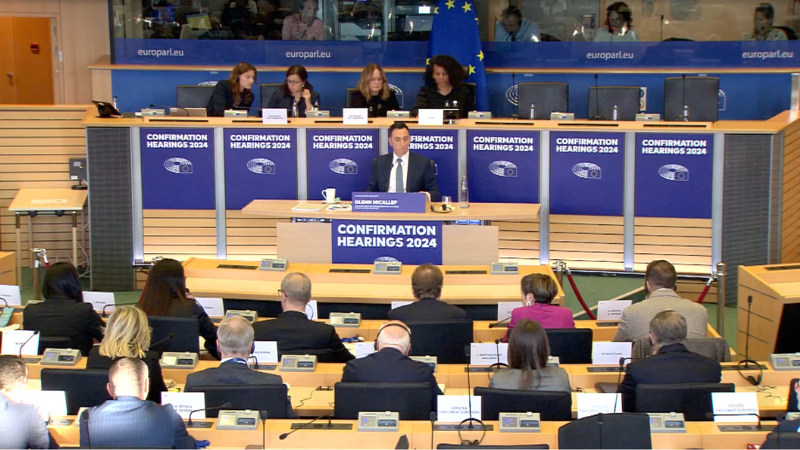The main point made by Glenn Micallef, Malta’s nominee to the European Commission, during his grilling on Monday as Commissioner-Designate for Intergeneration Fairness, Youth, Culture and Sport, was the idea of a “culture compass”.
He defined it as incorporating three main pillars: protecting cultural heritage, better cohesion and boosting competitiveness and innovation.
Micallef’s “culture compass” would connect with the Commission’s broader objectives – a strategy he said would be “a game changer”.
In what was overall a robotic presentation reflecting Micallef’s inexperience, he shot out statistics on sport, culture, art and education in Europe but kept returning to his “culture compass” and several other platitudes, such as “a union that has active youth is prepared for the future”.
“Shared values”, was another favourite term for Micallef, which he listed as diversity, fairness, solidarity and democracy. Micallef went as far as saying, “I will use my full power of sport and culture to promote peace.”
Towards the end of the three-hour grilling session, he was asked to be more specific and outline in concrete terms how the lofty objectives such as “never leaving a child behind” could actually be achieved. Micallef repeated his belief in the opportunity available, largely raising directives already in place and their need to be implemented.
He struggled with the rule of law questions, an issue that is a problem in Malta.
He was well prepared on EU acts, treaties, and objectives, which again helped him evade difficult questions, such as how iGaming, an important industry for Malta, featured in his objectives.
Cyberbullying, AI, social media, and screen time were issues repeatedly raised by members questioning Micallef. He said sport would help save on screen time. He acknowledged the problem of cyberbullying and said he believed in harnassing the power of AI while mitigating its risks.
He also said he believed in the power of youths, adding that they enabled Malta’s accession to the EU – even though his party opposed it.
Micallef said 7.7 million people work in the cultural sector in Europe, but 68% have to work two jobs to make ends meet.
He promised “clarity, openness and transparency” to defend the interests of current and future generations.
Prime Minister Robert Abela was criticised for nominating the young Micallef, which led Malta to gain one of the least significant portfolios in the Commission. In past years, Malta’s Commissioners held important portfolios for the country, such as fisheries, an important industry in Malta.
According to the mission letter outlining the contents of his portfolio, Micallef will be responsible for supporting young people and building on commonalities that bring people together, from cultural heritage to sport.
Micallef will therefore have to develop a strategy on intergenerational fairness to map out how to strengthen communication between generations, and to make sure that decisions taken today do no harm to future generations.
Micallef was the youngest proposed member of Ursula von der Leyen’s Commission. From 2020 to June 2024, Micallef served as the Head of the Secretariat of Prime Minister Robert Abela as well as his adviser on EU affairs, and as Malta’s sherpa at the European Council.














Evading pertinent questions by Glen Micallef from several MEP’s shows that the three hours of the so called “grilling”was a useless exercise!